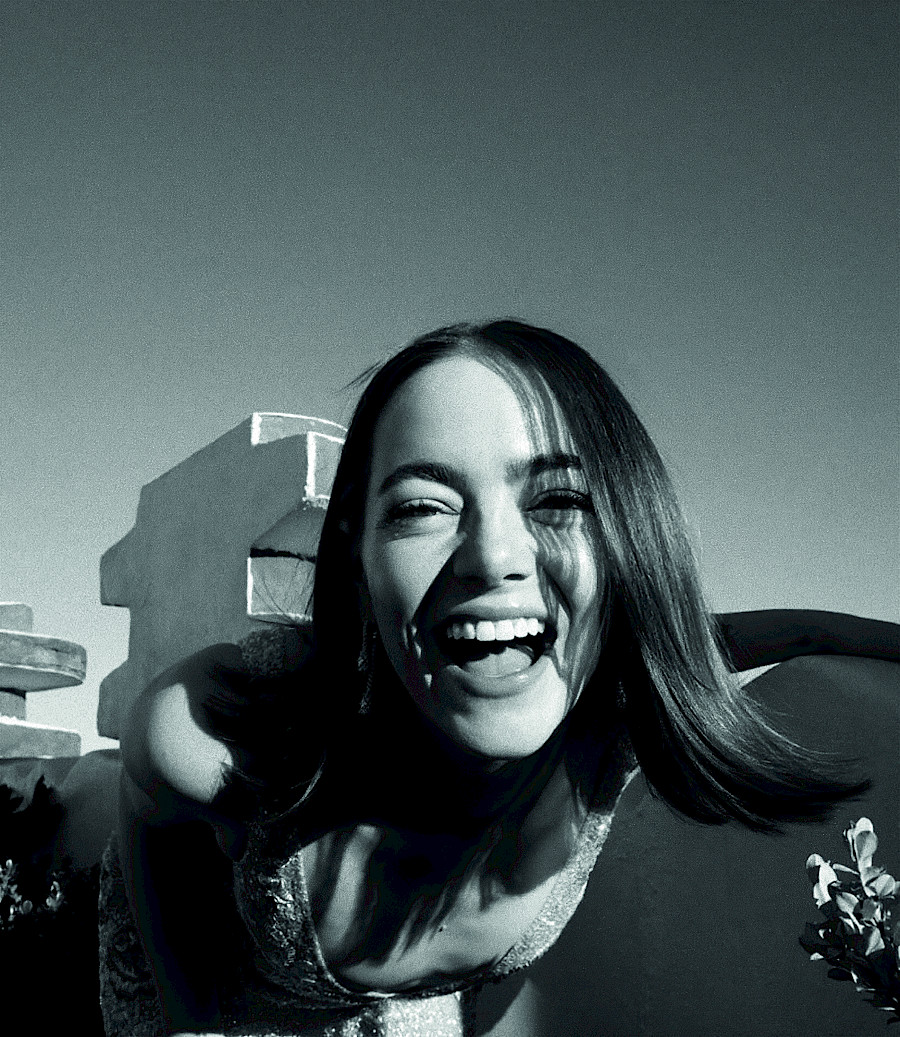
Emma Stone has always dreamed of acting in films. At the age of 15, she and her mother moved to Los Angeles to pursue her aspirations of becoming a child actress. In 2007, she made her debut in the comedy "Superbad," which paved the way for her involvement in comedy projects like "Zombieland."
In 2010, she starred in the comedy-drama "Easy A," revolving around a high school scandal. Following her roles in two "Spider-Man" films, Stone ventured into projects helmed by renowned directors such as Woody Allen and Cameron Crowe. The actress earned her first Oscar nomination for her supporting role in "Birdman," which won Best Picture in 2015. Two years later, she received the Oscar for Best Actress for her performance in Damien Chazelle's musical "La La Land." Since then, Stone has consistently captivated audiences and garnered critical acclaim. Notable among her recent projects is her collaboration with director Yorgos Lanthimos. Emma Stone received the award for Best Actress at the BAFTA 2024 ceremony on February 18th for her role in "Poor Things".
On March 11th, she won her second the best actress Oscar for "Poor Things." From the broken zipper on her expensive couture – "Don't look at the back of my dress!" – to her tearful words of gratitude and jokes, Emma's speech was the most emotional on stage.
In total, "Poor Things" secured victories in 4 categories, including Best Makeup and Best Costume Design.
The Whole Movie is a Metaphore
How did your collaboration with Lanthimos begin?
The process was quite ordinary – the agent sent me the script, I read it, and immediately thought, "This is mine!" At first, we worked on "The Favourite," and I was drawn to this role because of the intriguing love triangle between three female characters. Initially, my character seemed too artificial, too charming. As I delved deeper into the script, though, I realised she was far more complex than I thought. Despite our differences, I found myself drawn to her. To portray this character, I had to challenge my own perceptions of life. Bella Baxter (the main character of "Poor Things"), a character Yorgos and I developed together, presented a different challenge. What intrigued me about Bella was her refusal to conform to societal norms dictating how a woman should speak, move, or feel. She carries no shame or past traumas and exists outside the confines of societal expectations. When she explores sex and love, she questions why these topics provoke such controversy and judgement, particularly for those who exploit them.
How does director Lanthimos work? What draws you back to collaborate with him repeatedly?
Yorgos is intriguing. In the beginning, his approach to work seemed peculiar to me, but with time, I grew accustomed to it and even found some enjoyment in his methods. He likes placing his actors in unconventional situations. Before shooting begins, we typically engage in rehearsals where we rarely refer to the script, instead participating in some strange exercises. For example, we roll around on the floor, hold hands, dance, or playfully interact. When we started, I thought the director aimed to make us appear foolish, dashing around the set. However, I came to realise that his methods aim to push actors out of their comfort zones, allowing them to become vulnerable and let go of control, enabling authentic performances. During filming, Yorgos provides minimal instructions. While other directors may give commands like "Speak louder! Pick up the pace! Do this, do that!" Yorgos simply observes, occasionally stopping to ask, "What film do you think you're in?" I remember him asking this question to Nickolas Hoult once, who responded, "I'm not sure what film I'm in. I'm still figuring it out." Yorgos merely gazed at him before silently walking away.
The protagonists of Lanthimos' films are often women. In "Favourite" three women in the early 18th century rule England. In "The Poor Things" Bella shows a degree of emancipation that our contemporaries can only dream of...
The women who ruled England in the 18th century was quite an accurate historical fact. Queen Anne came to power by succession. She became the last of the Stuart dynasty. However, it appears that the director is less concerned with historical accuracy and more inclined towards satire. Notice how he portrays characters in his films – typically, historical figures are depicted as brave individuals shaping the course of history, enduring hardships, battling, loving, and ultimately meeting their demise. Yet, in Yorgos's films, these characters are seen running around palaces in high heels with elaborate wigs, engaging in gossip. It seems the director uses history and literature to dissect human behaviour, which doesn't seem to change at all over time.
Speaking of manners, have you ever had to compete with other women, as your heroines often do?
I remember feeling that way back in high school. Many girls at that age have such temperament – they strive to win and crave the spotlight. During my teenage years, I struggled with panic attacks and sought help from therapists. The crucial lesson I learned from this experience is that one must learn to manage their emotions; otherwise, their emotions will begin to control them. As I grew older, my interest in competing with other women and seeking thrills waned. Now, what matters most to me is finding inner balance and feeling calm and at ease.

After watching Cary Fukunaga's "Maniac," I noticed you liked psychologically complex roles.
I have no prejudices, I'm ready to portray any character, even a madman or a monster. That's why I became an actress: to embody a variety of people, get into unusual worlds, and discover something new and enlightening. When choosing a role, I always rely on my intuition. Sometimes, I use visualisation and mentally replay the scenario before making a final decision. It may sound strange or challenging, but it's important for me to fully invest myself in the characters I portray.
Do you remember when you decided to become an actress?
I remember it like it was yesterday. In October 2003, I decided to move to Los Angeles, and within three months, I was already living there. I was just 15 years old at the time. While my father offered his unwavering support, sending me money and encouraging
me to pursue my dreams, my mother expressed more scepticism. She cautioned me to consider the consequences of my decision and to be prepared for the possibility of failure. Despite her reservations, she advised me to secure a reputable agent. Taking her advice to heart, I found representation, and by the age of 17, I was already receiving offers to act in films.
Would you say Hollywood was at your feet?
Not at all! During that time, I lived in a small apartment, had irregular eating habits, attended acting classes, and juggled a dozen part-time jobs. One of the most amusing jobs I had was at a dog bakery. While other kids were heading to school in the early morning, I was busy baking cupcakes for dogs. It's the kind of quirky experience that seems uniquely Los Angeles. Well, it wasn't my cup of tea at all. When I turned 20, I made the move to New York, where I still spend most of my time when I'm not filming. Due to the demands of my work and constant travelling, I have very few friends, but I've come to see it as a positive thing. Maintaining friendships requires time and energy, and having fewer connections allows me to focus more on those that truly matter. Besides, living in a constant state of separation from loved ones would be difficult for me.
Do you remember the premiere of La La Land? What is most memorable from that period of your life?
I still have one scene clearly in front of me: the director and I standing at the premiere in Venice, holding hands and sweating with nervousness. Back then, I couldn't imagine the immense success the film would achieve. Overall, my life after that film has been like a fairy
tale! I've had the opportunity to work with incredible directors, star in compelling films, receive awards and nominations, and land one rewarding role after another!
You danced great in La La Land, and in the Broadway production of Cabaret, you even started singing...
I'll gladly accept compliments on my dancing, but if you start praising my singing, I'll know you're lying! I have no singing talent whatsoever. I lack an ear for it, and my voice has always been a source of discomfort for me. I believe it's why I faced rejection for roles when I was younger. Picture this: a delicate, blonde girl, and then she opens her mouth, and out comes a bass voice. I was often told that my face looked too young, while my voice sounded too mature, and I was turned away. Thankfully, childhood is behind me. I never enjoyed being a kid.
I'm ready to portray any character, even a madman or a monster

What would you like to be if you hadn't become an actress?
I always wanted to be an actress. For actors, it's often hard to desire anything else because their profession is their deepest passion. However, recently, I've discovered a newfound interest in architecture and history. The first time I laid eyes on the British Parliament building in London, I was mesmerised. From a distance, it appears grand and imposing, but up close, it seems delicate, as if a mere breath could cause it to crumble. After participating in a historical drama, my fascination with history deepened. I found myself intrigued by the lives of those who came before us – their customs, beliefs, and even their fashion choices.
What are your plans for the future?
There are too many of them. It's time to have kids. I want to spend more time with the person I love because love is the one thing that shouldn't be sacrificed, even for the most dazzling career. Also, I need to cut back on my uncontrolled caffeine consumption. Nowadays, I aim to begin my mornings with meditation instead of reaching for a cup of coffee.
I want to spend more time with the person I love

- Greek director Yorgos Lanthimos, hailed as one of the top directors of our time, is a favourite of Hollywood and Cannes. He has received six Academy Award nominations and has been nominated for BAFTA six times as well.
- His breakout film "Dogtooth" (2009) propelled him to international fame, winning the Un Certain Regard Award at the Cannes Film Festival and receiving an Oscar nomination for Best Foreign Language Film.
- His first English-language film,"The Lobster" (2015) garnered him another Oscar nomination, the ARTE International Award for Best CineMart Project for 2013 at the 42nd International Film Festival Rotterdam. Lanthimos's exceptional talent was again evident with "The Killing of a Sacred Deer," (2017), which premiered at the Cannes Film Festival and earned him the esteemed Best Screenplay Award.
- "The Favourite" (2018) clinched the European Film Academy's (EFA) highest accolade for Best Film. At the 75th Venice Film Festival, Lanthimos led to his receipt of the Grand Jury Prize. For his work on this film, the director received the 2019 BAFTA Award for Outstanding British Film of the Year and 10 Oscar nominations.
- Most recently, Lanthimos's latest film, "Poor Things," (2023) made waves in the industry by receiving the prestigious Golden Lion at the 2023 Venice Film Festival. This remarkable achievement was followed by a string of accolades, including Golden Globes for Best Film (Musical or Comedy) and Best Actress for Emma Stone. "Poor Things" made a remarkable impression at the Oscars, receiving nominations in 11 categories. The film triumphed in four categories, earning the 2024 Oscar for Best Performance by an Actress in a Leading Role (Emma Stone), Best Achievement in Production Design, Best Achievement in Costume Design, and Best Achievement in Makeup and Hairstyling.



